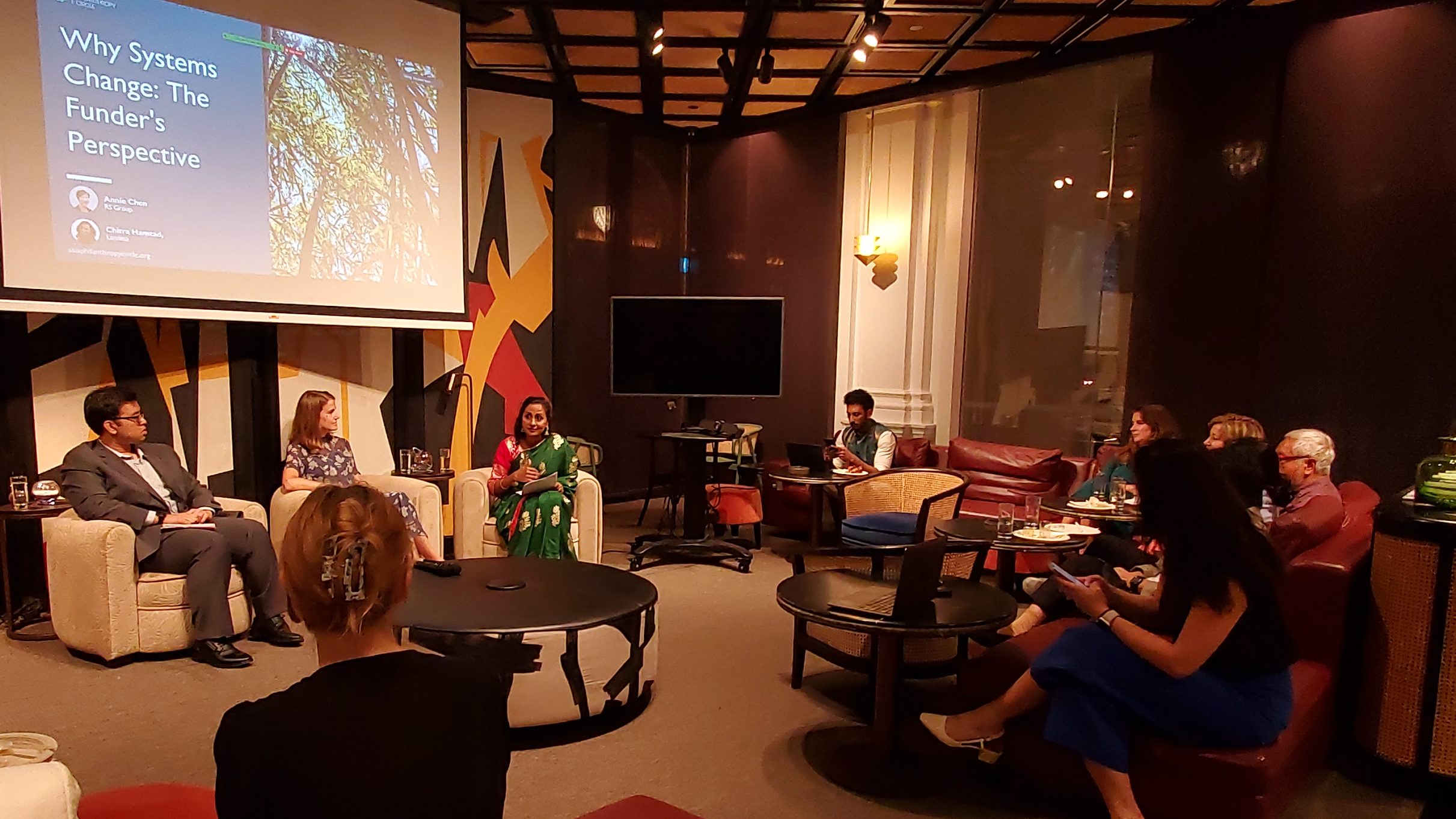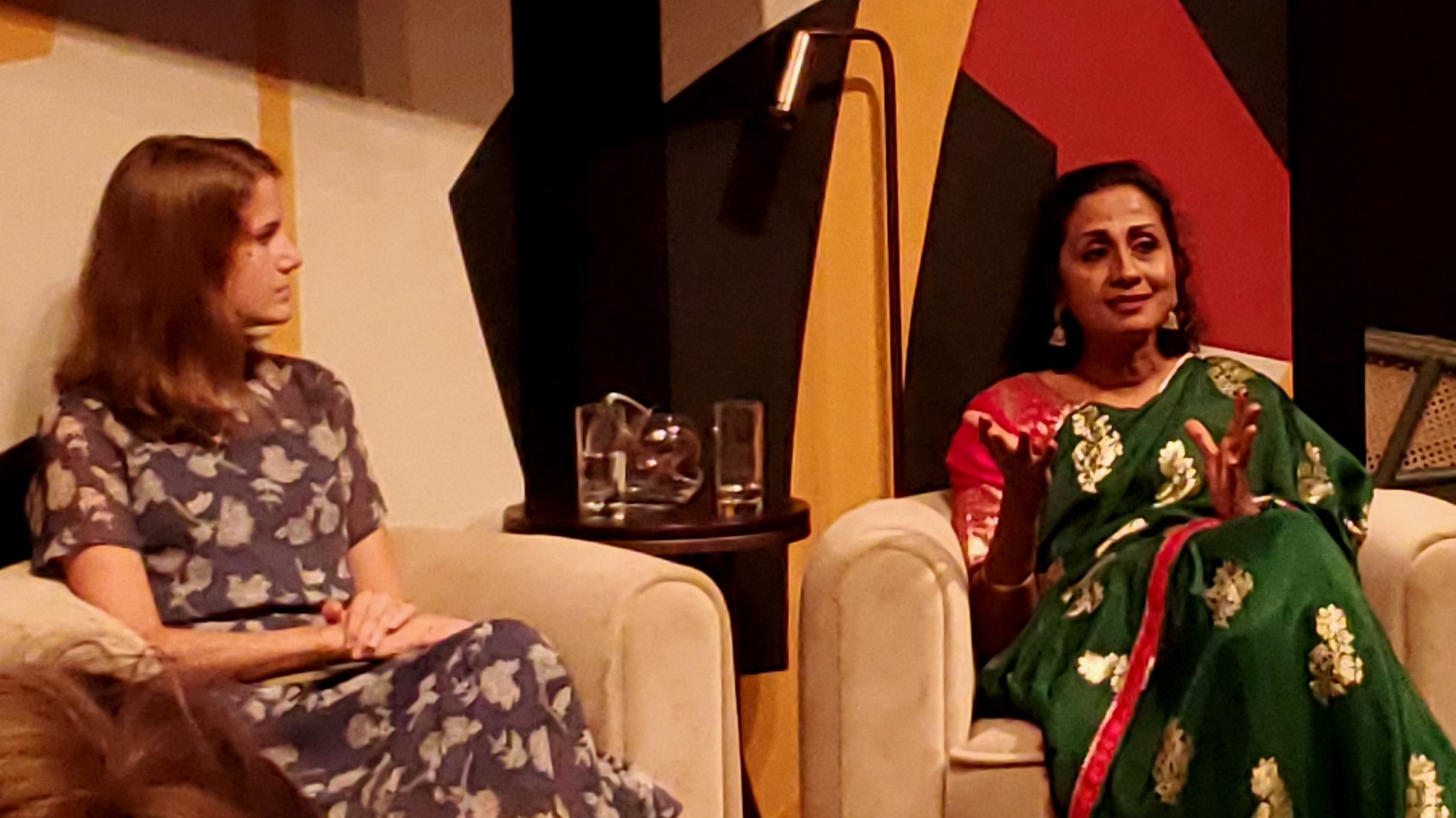BY SARAH TAM, CLIMATE LEAD
How does securing land rights accelerate progress towards the Sustainable Development Goals?

Land rights are a foundation for better lives—they provide shelter, economic empowerment, upward mobility, and food security. When people and communities hold secure rights to land, efforts to tackle climate change are more successful.
This is all the more important in a region like Southeast Asia, home to an estimated 100 million smallholder farmers. Yet for many — particularly women and Indigenous Peoples — secure land rights are rarely accessible.
So, how are communities securing rights to their land in Asia? In September 2023, APC and AVPN teamed up to host Rachel McMonagle (Climate Change Programme Director) and Chitra Hanstad (Senior Philanthropy Officer) from non-profit organisation Landesa to share their work over the last 50 years in securing land rights for millions of the world’s poorest. They do this by partnering with governmenst and multilateral institutions to create tailored solutions to for their citizens and aelevate land rights in the regional development agenda.
We invited them to share more about their work—both globally and in Asia—with all of you. Read on!
Sarah Tam (ST), APC: Landesa’s goal is to secure land rights for millions of rural women and men globally. Why are land rights so critical for the communities you work with?
Chitra Hanstad (CH), Landesa: Around the world, people experiencing poverty commonly share three traits: One, they live in rural areas. Two, they tend to rely on agriculture and forests to survive. And three, they usually lack legal control over the land upon which they depend.
Land is the bedrock of rural communities. Research shows securing land rights have been vital to boosting agricultural productivity and food security, reducing conflict among communities, neighbours and family members, and mitigating and adapting to climate change. With the knowledge that one’s land is securely owned, rural land users have the conditions and incentives to make long-term, climate-smart investments into tree-planting, soil conservation, and irrigation infrastructure, amongst others.

ST: How does land tenure security accelerate progress towards SDGs, for example—towards alleviating poverty, gender equality, and climate action?
CH: During the development of SDGs, Landesa co-led a multistakeholder global coalition to champion secure land rights as a critical development solution, recognizing that land is foundational to many other developmental interventions. This effort culminated in three SDG targets and three indicators under SDGs 1: No Poverty, SDG 2: Zero Hunger, and SDG 5: Gender Equality that refer directly to land rights.
With secure land rights as a foundation, efforts around all of the SDGs can gain traction. In fact, evidence demonstrates that securing women’s rights to land leads to improved health, education, and nutrition for entire households, can improve livelihoods, strengthen climate adaptation and mitigation, and crucially—enhance women’s voices and decision-making powers within households.
Land rights are likewise crucial in the path towards climate justice, a powerful tool to flip the script from degradation and hunger towards resilient environments and thriving communities.
ST: A recent report finds that 21.5% of land is owned by communities in Asia, with China driving this through collective ownership of forestland and its pasture contract system. Yet outside of China, Asia’s community land ownership stands at about 0.8%. What do you see as the greatest obstacle to success for the land rights movement in Asia?
CH: Our biggest obstacle is a lack of awareness around the essential role land rights play in poverty alleviation, gender equality, and climate resilience. Securing land rights for communities addresses poverty at its root, but that often means the transformative impact appears further down the line.
We also see a lack of resources for the type of systems change work Landesa engages in. Landesa has worked in Asia for over three decades, recording multiple policy wins in China and India that have impacted hundreds of millions of people with stronger rights to land. This work requires patience and time, but a policy win can positively impact a very large number of families. In the past five years alone, through our systems change approach Landesa has strengthened land rights for more than 720 million people.
ST: What is one thing you want APC members to take away from Landesa’s work?
CH: Land, land, land! The importance of land rights in confronting the climate crisis. The importance of land rights in empowering women to offer them and their daughters a path out of poverty. The importance of land rights as a way for communities to grow pathways towards prosperity.
When people gain secure rights to land, they gain firm ground to stand on—firm ground to grow a brighter future. Land is an essential asset.
What’s next?
Next year, we are excited that a group of APC members will be joining the Landesa team in Thailand to see their work in action, particularly in mangroves. Asia is home to nearly half of the world’s mangroves—which store a whopping 4x more the amount of carbon than the Amazon rainforest. Landesa’s work in the Bay of Bengal and Southeast Asia aims to strengthen coastal land rights and to protect the 4.6 million hectares of mangrove forests, as well as the livelihoods of the 74 million individuals who depend on them.
